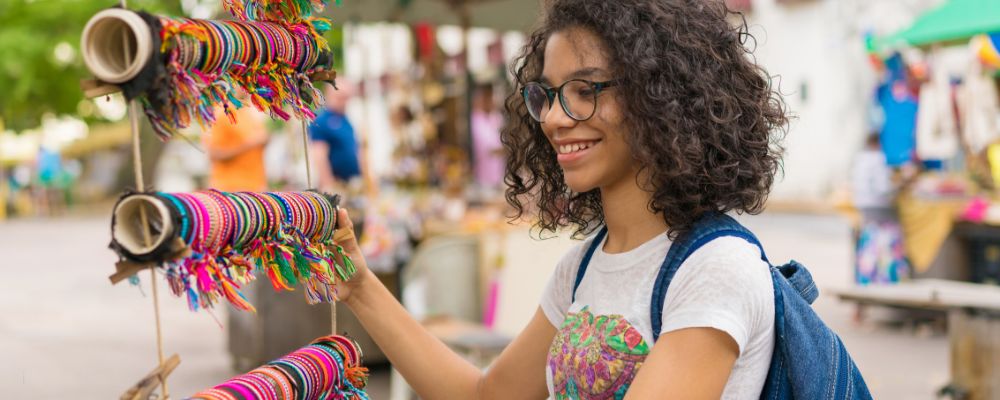Cultural and social topics encompass a wide range of subjects that explore the various aspects of human societies, traditions, behaviors, and interactions. These topics are often deeply intertwined with values, norms, beliefs, and practices that shape our collective experiences. Below are some key areas within cultural and social topics that you may find insightful:

1. Cultural Identity and Diversity
- Cultural Heritage and Preservation: Understanding the importance of preserving cultural traditions, languages, and heritage sites in the face of globalization.
- Cultural Integration and Assimilation: The dynamics of how people from different cultures interact when they migrate, and the tension between maintaining cultural identity and assimilating into new societies.
- Multiculturalism: Exploring the benefits and challenges of multicultural societies, where multiple cultural groups coexist.
- Cultural Appropriation vs. Appreciation: The fine line between appreciating another culture and appropriating elements of it without understanding or respect.
2. Social Justice and Equity
- Racial and Ethnic Disparities: Addressing systemic racism and promoting equity in education, healthcare, employment, and criminal justice.
- Gender Equality: Exploring the movement toward gender parity, the challenges of breaking gender stereotypes, and the ongoing fight for women's rights globally.
- LGBTQ+ Rights: The evolving social and legal status of LGBTQ+ communities and the advocacy for equal rights and recognition.
- Economic Inequality: Investigating the growing wealth gap and its implications for social mobility and access to resources.
3. Globalization and Its Impact on Culture
- Cultural Homogenization: How globalization may lead to the diminishing of local cultures as Western and dominant cultures spread globally.
- Cultural Exchange: The positive aspects of globalization that foster cultural exchange, collaboration, and mutual learning.
- Digital Media and Cultural Shift: The role of social media and digital platforms in shaping and redefining cultural practices, from entertainment to political activism.
4. Migration and Diaspora Communities
- Immigration Policies: The sociopolitical debates surrounding immigration, border control, and refugee crises.
- Diaspora Identity and Contributions: Exploring how diaspora communities maintain cultural connections, contribute to both their host countries and native homelands, and advocate for social issues.
- Acculturation and Social Integration: The processes through which immigrant communities adapt to new environments while maintaining their cultural roots.
5. Social Movements and Activism
- Civil Rights Movements: Historical and modern-day civil rights movements that have fought for racial, gender, and social equality.
- Environmental Justice: Movements advocating for the protection of communities disproportionately affected by environmental degradation, often marginalized communities.
- Global Youth Movements: The role of young people in advocating for climate action, political reforms, and social justice through activism and digital campaigns.
6. Cultural Traditions and Modernization
- Traditional vs. Modern Values: The tension between traditional cultural practices (e.g., arranged marriages, gender roles) and the push for modernity and reform.
- The Role of Rituals in Society: How rituals, festivals, and ceremonies help maintain cultural continuity and social cohesion.
- Cultural Evolution: How cultures evolve over time, adapting to changing technologies, ideologies, and social structures.
7. Media, Representation, and Popular Culture
- Representation in Media: The importance of accurate and diverse representation of different cultural, racial, and social groups in film, television, and advertising.
- Pop Culture Influence: How music, film, fashion, and art reflect and shape cultural norms, values, and social behaviors.
- Media Influence on Social Change: The role of media, especially social media, in driving movements, shaping public opinion, and fostering a sense of community or division.
8. Religion and Spirituality
- Role of Religion in Society: The influence of religion on cultural practices, laws, and social norms, as well as its role in providing community and identity.
- Interfaith Dialogue: Encouraging understanding and cooperation between people of different religious backgrounds to foster peace and collaboration.
- Secularism vs. Religious Influence: The debate over the separation of religion from state affairs and its impact on social policies.
9. Health, Wellness, and Social Care
- Mental Health Awareness: Reducing stigma around mental health issues and improving access to mental health services across cultures.
- Healthcare Inequities: Exploring the social determinants of health, such as how socioeconomic status, race, and geography influence access to healthcare.
- Community Well-Being: The importance of building strong social networks and community resources to promote overall well-being.
10. Education and Social Mobility
- Educational Equity: Addressing the barriers to quality education, particularly for marginalized groups, and the role of education in fostering social mobility.
- Cultural Education: The importance of including diverse histories, languages, and cultural perspectives in educational curricula.
- Global Education Systems: How different countries approach education and what lessons can be learned about fostering innovation, creativity, and inclusion.
11. Technology and Social Impact
- Digital Divide: The gap between those with access to technology and the internet and those without, and its implications for social inclusion and economic opportunity.
- Social Media and Community Building: How platforms like Facebook, Instagram, and Twitter can both strengthen and divide communities.
- Artificial Intelligence and Ethics: The social and cultural implications of AI, particularly around issues of privacy, employment, and ethical decision-making.
12. Art, Music, and Cultural Expression
- Cultural Expression Through Art: How art serves as a vehicle for expressing cultural identity, preserving traditions, and commenting on social issues.
- The Role of Music in Social Movements: The power of music in rallying people for causes, creating solidarity, and expressing resistance.
- Cultural Festivals and Celebrations: The significance of cultural festivals in bringing communities together, fostering pride, and maintaining traditions.
